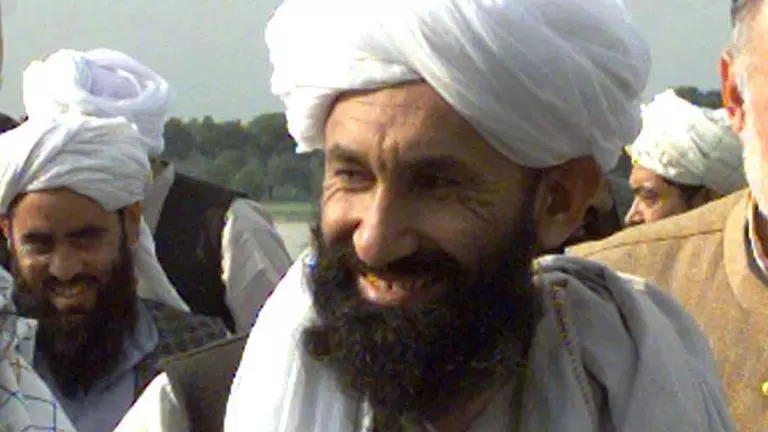
Will the new Afghan government clear the uncertainty?
text_fieldsFile photo Mullah Mohammad Hassan Akhund
The new government is taking office three weeks after US troops withdrew from Afghanistan and Ashraf Ghani, the head of the previous US puppet government left the country with the Taliban seizing control of the country. The Taliban has announced an interim government led by Mullah Mohammad Hassan Akhund. Taliban spokesmen have repeatedly stated that they will soon form a national government comprising all parties as per the Doha Accord. It remains to be seen how much of this has been realised. It appears that the Taliban was waiting to capture Panjshir, a major city in the north. The obstacle was removed when the Northern Alliance had to retreat, unable to hold on despite fighting.
The cabinet announcement comes amid widespread rumors that the differences within the Taliban leadership are hampering consensus. In any case, the country cannot move forward without the realization of a civilian government with full participation and consensus. It is also necessary to gain the approval of the world community and the United Nations. Without it, it will be very difficult for a country that has been in ruins for two decades to hold on or move forward. In order to gain recognition and cooperation, fundamental compromises will have to be made in the policies that have been followed so far. Whatever the name of the country, the Taliban must abandon its old stubbornness and rigidity if it is to establish a peaceful Afghanistan with the support of the superpowers and the support of the civilised world. Taliban spokesman Zabihullah Mujahid's latest statement that "the war is over and now is the time for peace" needs to be validated by practical steps on the ground. He has called on the Afghan army, which has received training for the past 20 years, to be part of the regime. He has also warned that he will strongly oppose any resistance against the regime.
Meanwhile, Nangarhar provincial governor Mulla Nida Mohammed, who has been fighting the pro-US government for some time, has threatened to crack down on IS militants. IS militants responsible for the bombing of Kabul airport are still active in Afghanistan. It is clear that restoration of peace is impossible by tolerating or maintaining them. It is clear that restoration of peace is impossible by tolerating or maintaining them. The governor claims that the Taliban government has captured about 80 IS militants from Jalalabad, the fifth largest city in the country. Taliban has a responsibility to prove that this is not the case as many countries and agencies share the concern that Afghanistan is a stronghold of Muslim terrorist groups around the world.
As for India,Afghanistan is becoming a safe haven for anti-India terrorist groups, which is a matter of great concern and concern to India. That is why Prime Minister Narendra Modi sees the Afghanistan issue as one of the main agenda during his planned attendance in this month's international forums. India cannot stand idly by as China, Russia, Pakistan, and Iran rush to strengthen ties with a Taliban-led Afghanistan. Our lack of vigilance cannot create crises for the security and economy of the country. The new Afghan government's top spokesmen have repeatedly stated that it attaches great importance to friendship and cooperation with India. India has initiated development projects and activities worth lakhs of crores in that country. India's goodwill and friendship are invaluable to Afghanistan to continue that. On the contrary, if the Taliban regime chooses to move forward by ignoring India, by pleasing governments not interested in maintaining good relations with India, that is bound to bring irreparable damage to that country itself. Recognising this, leaderships of both countries should resolve to write a new chapter in creative India-Afghan relations. In this equation, what either countries in internal matters should be viewed as internal matters. And the gesture of countries like the UAE, who maintain extremely relations with India, providing humanitarian relations to Afghanistan should bear a lesson in this regard.






















